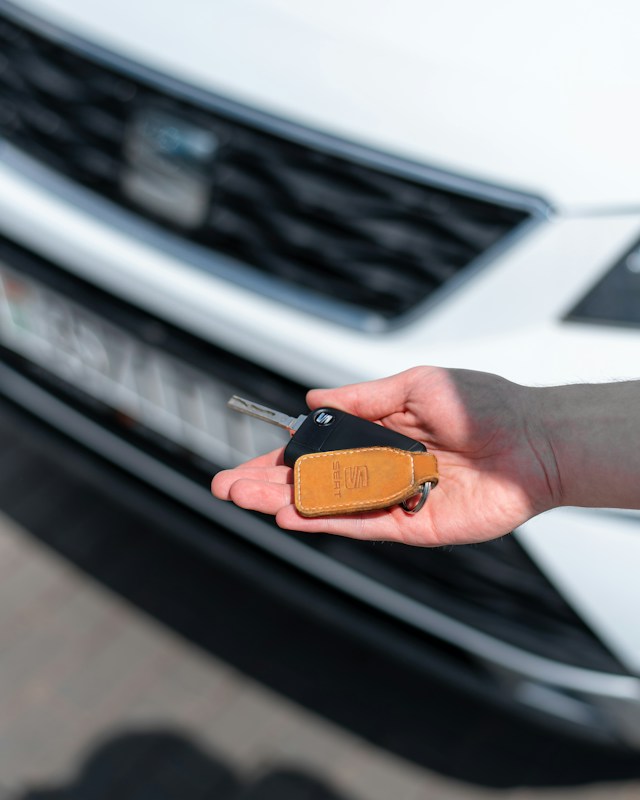
Car Key Maintenance: Tips to Prolong the Life of Your Vehicle’s Access Tool
Let’s focus on the importance of car key care, as well as highlighting some effective methods to ensure you get a long lifespan and optimal functionality out of your vehicle’s access tool.
Over recent years, we have witnessed the rise in many technological advancements in the automotive industry, with the main one being the move from mechanical devices (such as manual car keys) to more high-tech electronic transponders and key fobs.
The maintenance of these systems is quite important, as it can be very costly to replace these if they fail to work or breakdown. Some of the common issues that can affect the overall performance of your automobile access system includes signal interference, decline in battery life and general key fob unresponsiveness.
If you’re experiencing any of these things, it might be time to get it checked by a car key service professional or a locksmith.
TIPS ON CAR KEY MAINTENANCE
Preserving the integrity and functionality of your car key involves adopting simple yet effective maintenance practices.
Keep Keys Clean: Dust and other particles can lodge inside the gaps of keys, greatly affecting its functioning capacity. It’s recommended you clean your keys regularly with a soft brush or compressed air method to get rid of any fine particles – avoiding the risk of any potential damage in the future.
Protect Against Physical Damage: We know dropping keys is unavoidable at times however, if this has happened to you on multiple occasions, it can stop your car key from working properly. By avoiding direct pressure or even exposing your car keys to high temperatures, you will minimise the chances of damaging your keys and causing unnecessary issues. Our advice is to try and cover them with protective key cases to prevent scratches, shocks and possibly even dents.
Check and Replace Batteries: In the case of key fobs and remote keyless entry systems, it’s important to regularly check battery levels. If you’re experiencing low battery voltage, it can often produce an unreliable signal transmission. To maintain the performance and integrity of your key transponder, it’s best to change the battery as soon as they become low.
Inspect for Wear and Tear: Check your keys for wear, especially on the buttons and keytops. If you observe any damage or deterioration, then deal with it promptly to avoid further problems. Change the defective key parts as soon as possible before it starts to affect the key’s performance.
Avoid Exposure to Liquids: Liquids can ruin the internal components of car keys, causing a range of issues. Whether from water spills or exposure to strong environmental elements such as humidity, it can ruin your key’s responsiveness and cause it to potentially stop working altogether. If your key touches any liquid, make sure that it is completely dried and if needed, call for a professional inspection.

TRANSPONDER KEY MAINTENANCE
Transponder keys that are programmed to communicate your vehicle’s immobiliser system require additional attention.
Programmed Spare Keys: If your main key is lost or doesn’t work, having a spare key as a back- up is a smart idea. This gives you greater peace of mind knowing that you won’t be locked out of your car for too long, as well as avoiding any costly fees associated with calling emergency services.
Avoid Key Bending: Bending or twisting the transponder keys may make them more sensitive. Treat them very cautiously to avoid ruining the internal chip and wiring. If the transponder chip is damaged, ignition problems and starting difficulties may occur.
Regular Ignition System Checks: In due course, it’s wise to verify the operation of your vehicle’s ignition system to ensure the transponder key is ready and the immobiliser system works properly. If you’re experiencing ignition problems, this might be pointing to a faulty transponder chip or immobiliser malfunction.
KEY FOB MAINTENANCE
Key fobs that are equipped with remote entry functions, require specific maintenance measures to ensure their reliability.
Button Functionality: All the buttons on your key fob should be tested regularly to ensure it’s working properly. Inconsistent responses to the button features can often indicate a problem with either the internal switches or the circuitry unit.
Key Fob Battery Replacement: As stated previously, ensure that you monitor your batteries frequently to prevent the need for replacement. Most key fobs these days have replaceable batteries and can be very easy to fix, should the inevitable happen.
Reprogramming After Battery Replacement: In some instances, your key fob may need to be reprogrammed even after a full battery replacement. For more information on specific reprogramming procedures, it’s best to check your vehicle manual for step-by- step manufacturer instructions.
SMART KEY MAINTENANCE
Proper maintenance is essential to preserve the advanced features of your sophisticated smart key device.
Keyless Entry Battery Monitoring: Smart keys may have a passive keyless entry system that responds to the presence of the key when you’re near your car. Frequently inspect and replace the battery to ensure you get continuous functionality of your keyless entry system.
Protect Against Hacking: Smart keys are RFID or wireless technology-based and therefore vulnerable to hacking. It’s good to do some further research into cybersecurity dangers and protect yourself against potential theft crimes. Signal-blocking pouches can be used for storing keys when they are not in operation.
Secure Storage: Store the smart key in a location where electromagnetic interference (produced by radio waves near electric devices) is substantially reduced or eliminated. Furthermore, keep the smart keys away from drastically cold or hot temperatures.

EMERGENCY PREPAREDNESS
Even with careful maintenance, unforeseen problems can sometimes arise. Being prepared for key-related emergencies is crucial.
Key Duplication: Ensure that you always have a spare key around, especially when it comes to electronic keys and key fobs. Backup keys are there to provide you with added convenience, especially when the unexpected happens. So, if you ever find yourself in a less than fortunate situation, it’s good to know you have a spare car key on hand.
Contacting Professionals: If you’re consistently having key-related issues, it might be best to contact a local car key service provider or a locksmith to help fix the issue fast. Avoid any DIY attempts, as this can result in further damage and do even more harm to your car key.
Emergency Key Access: If you find that your battery- operated key isn’t opening your car door properly and you need to get into your vehicle fast, you can try to access the physical key, which is often hidden inside the transponder. This will manually open your car door and turn on the ignition.
CONCLUSION
Car key maintenance is an essential part of vehicle ownership. When little things go wrong, it’s important to know how to fix the problem fast.
Whether you have a mechanical key, smart key or key fobs, they each have their specific maintenance requirements.
By implementing simple strategies such as keeping your keys clean, keeping a spare on hand, knowing how to activate emergency features, as well as having a ‘go to’ car key service provider or a locksmith you can trust, you will be much better equipped to handle your vehicle’s access tool when things go wrong.
MS Auto Keys offers the latest solutions in mobile car key services Melbourne wide.